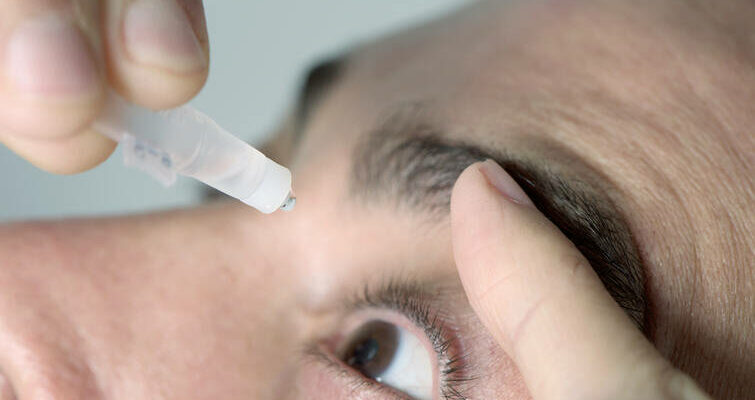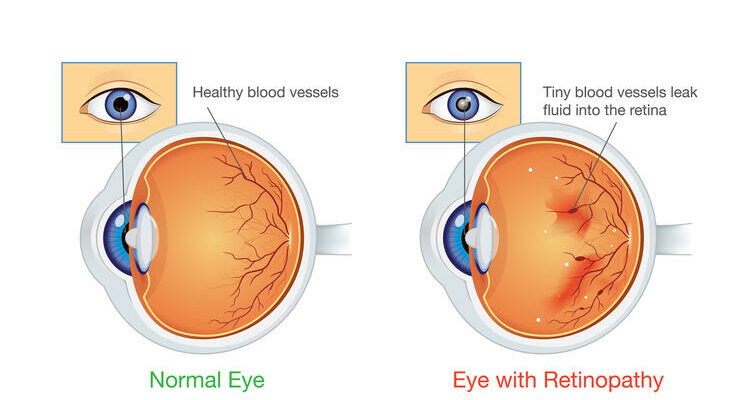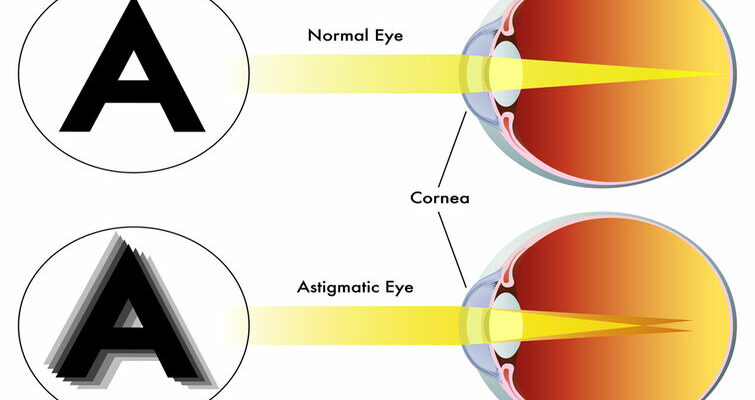
Macular Degeneration
Macular degeneration is a disease of the macula – a small area in the retina at the back of the eye. The macula allows you to see fine details clearly and do things such as read and drive.
When the macula does not work properly, your central vision can be blurry and have areas that are dark or distorted. Macular degeneration affects your ability to see near and far, and can make some activities — like threading a needle or reading — difficult or impossible.
In some patients macular degeneration may not affect your vision very much. In other cases, however, vision loss may be more rapid and severe. Macular degeneration is the most common cause of severe vision loss in people older than 50.
Even with advanced medical treatments it may be impossible to stop macular degeneration. However, with help from your eye doctor you can make the most of the vision you have. Schedule an exam today to screen for macular degeneration and find out what treatment options are best for you.
Causes
Many older people develop macular degeneration as part of the body’s natural aging process. There are different kinds of macular problems, but the most common is age-related macular degeneration (ARMD).
Oxidative stress is thought to play a major role in how ARMD develops. Many people (approximately 1 in 3 Caucasians) have genetic changes that make them more prone to this damage.
Major risk factors for ARMD include being more than 50 years old, having a family history of ARMD, and cigarette smoking. Another risk factor for developing ARMD may include having abnormal cholesterol levels.
Many people with ARMD have deposits under the retina called drusen. Drusen alone usually do not cause vision loss, but when they grow in size or number, there is an increased risk of developing advanced ARMD.
Types of ARMD
The two most common types of ARMD are dry (non-neovascular) and wet (neovascular).
Ninety percent of people with ARMD have the “dry” form. This condition is caused by damage (oxidative stress) and results in thinning of macular tissue. Vision loss is usually gradual. Many people with this form also have difficulty adjusting to changes in light. For example, they may find it takes them some time to adjust to seeing indoors when they come in from outside.
Ten percent of people who have ARMD have the “wet” form. Many of these people develop significant vision loss. Wet ARMD results when abnormal blood vessels form underneath the retina. These new blood vessels leak fluid or blood and blur central vision. Vision loss may be rapid and severe.
Treatments
Nutritional Supplements
Antioxidant vitamins and zinc may reduce the impact of ARMD in some people. A large scientific study found that people at risk for developing advanced stages of ARMD lowered their risk by about 25 percent when treated with a high-dose combination of: vitamin C (500 mg); vitamin E (400 iu); beta carotene (15 mg); zinc (80 mg), and copper (2 mg). Another large study in women showed a benefit from taking folic acid and vitamins B6 and B12. And a large study evaluating the benefits of lutein and fish oil (omega-3) is ongoing.
Among those who either have no ARMD or very early ARMD, the supplements do not appear to be beneficial. Family members of patients with ARMD should check with their doctor before taking these vitamins themselves.
Vitamin supplements are not a cure for ARMD, nor will they give you back vision that you may have already lost from the disease. In certain cases, there may be some risks with taking supplements. However, specific amounts of these supplements do play a key role in helping some people at high risk for advanced ARMD to maintain their vision. Talk with your ophthalmologist to find out if you are at risk for developing advanced ARMD, and to learn if supplements are recommended for you.
Anti-VEGF Treatment
The most common treatment for wet ARMD involves injecting a drug into the eye that stops blood vessel growth and bleeding. These drugs, known as VEGF blockers or anti-VEGF treatments, target a specific chemical in your body that causes abnormal blood vessels to grow under the retina. That chemical is called vascular endothelial growth factor (VEGF). These anti-VEGF treatments improve vision in some people with wet ARMD.
Laser Surgery
Certain types of wet macular degeneration can be treated with laser surgery, which is a brief, outpatient procedure that uses a focused beam of light to slow or stop leaking blood vessels that damage the macula.
PDT
A treatment called photodynamic therapy (PDT) uses a combination of a special drug and laser treatment to slow or stop leaking blood vessels.
Learn more about common eye problems and treatments from our helpful video collection.



